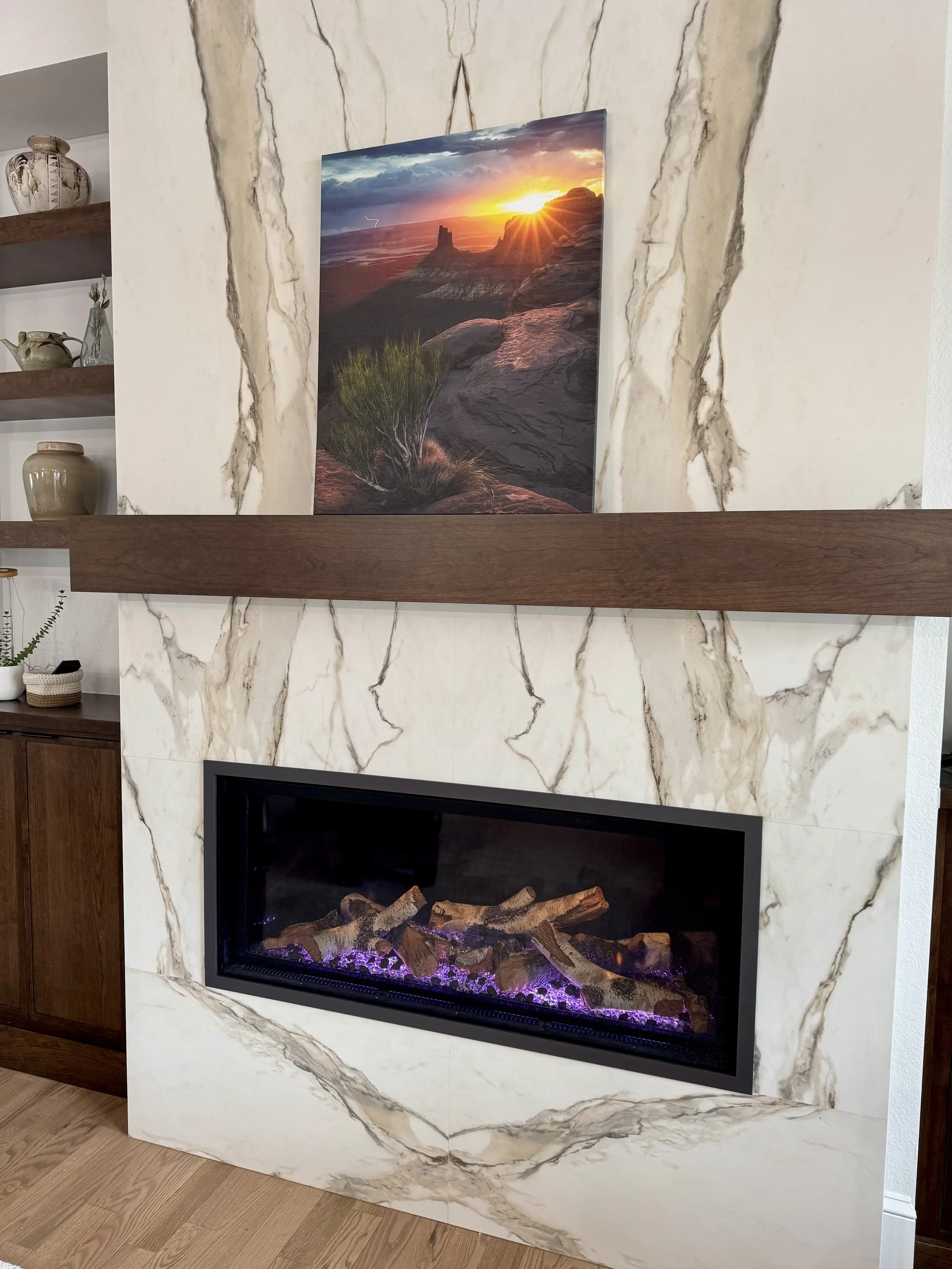Natural gas as fuel is a hotly debated topic. Concerns include reduced carbon emissions and improving public health, and there are valid points on both sides. Some believe it should be banned entirely, while others point out the benefits. In this article, we will explore both sides of the issue - and although we sell and service gas fireplaces, inserts, and stoves, we are also passionate about the environment as well as health and safety, so we will give you an unbiased look at the pros and cons of natural gas.
Concerns About Natural Gas
Many people don’t realize that natural gas is, like oil, a fossil fuel. This means that emissions from burning natural gas can be toxic. Burning natural gas produces methane, carbon monoxide, carbon dioxide, volatile organic compounds (VOCs), nitrogen dioxide, and trace amounts of particulates.
Concerns with natural gas include:
Methane is well-known as a contributor to the greenhouse effect
Carbon monoxide poisoning is a real concern with any gas appliance; any appliance that leaks gas will reduce indoor air quality, potentially to dangerous levels
Natural gas is flammable and combustible (only a concern if there are leaks)
Natural gas is extracted by fracking, which can cause serious environmental damage
Because of health concerns, some cities have banned gas appliances in new construction.
Counterpoint
There are always two sides to every story. Here’s what proponents of natural gas have to say:
The carbon emissions of natural gas are significantly lower compared to other fossil fuels (NG burns the cleanest)
Natural gas is considered by some as a “bridging fuel” that lies somewhere in between the need for fossil fuel plants (i.e. oil refineries) and large-scale renewable energy production. In other words, it’s not perfect, but there is no perfect fuel source: even solar, wind, and hydro-power require electricity and other fuels for production and distribution.
There is no “perfect” fuel. If you’re heating your home and cooking with electricity, that electricity has to be generated. Most electricity in Colorado is generated using coal and natural gas! While wind and solar are gaining ground in our state, most of your electricity is “dirty.” If you’re heating your home with wood and you are not using a modern EPA-Certified appliance, the emissions are contributing to global warming; and if you’re not sourcing your own wood on your property by hand, you are using gas and/or electricity to cut, split, and haul the wood.
Benefits of Natural Gas
There are some ways in which natural gas is a clear winner:
Natural gas is readily available and relatively inexpensive in Colorado
Natural gas is safe to store and transport
Electricity is not a viable choice for home heating in areas with frequent power outages, such as the foothills with heavy snow and wind; natural gas fireplaces and stoves operate without electricity for consistent and reliable heat anytime
Modern fireplaces, inserts, and stoves do not leak any dangerous gases into the home. We sell only direct-vent units, which means the unit draws combustion air from the outside and safely vents exhaust gases outside. There is NO indoor air used for burning, unlike open gas appliances such as fireplaces with gas log sets, which use indoor air for combustion.
Gas fireplaces do get very hot, but they also have an on-off switch so they can be turned off instantly.
Gas fireplaces are typically used as supplemental heat, but since they use significantly less fuel than gas furnaces, you can turn down the thermostat and use less gas to heat the most lived-in parts of your home.
For people who want the ambience and heat of a fireplace but can’t handle the physical part of wood-burning (sourcing, cutting, stacking, splitting, carrying, and ash disposal) gas is a welcome alternative.
Fireplaces have been the heart of the home for millennia. No other heat source is as welcoming or beautiful!
And that brings us to our final point: heat shouldn’t be all about practicality. There’s nothing wrong with bringing beauty into the home at the same time. Our passion for the hearth isn’t limited to wood-burning. We love the convenience and reliability of gas too!
We’re not just saying this because we sell them, but we don’t think that gas fireplaces should be banned. As we’ve mentioned, there is no perfect fuel. Electric plants may be coal-fired, powered by nuclear energy, or require that gorgeous rivers be dammed. Wood, while a renewable resource, can mean unsustainable logging practices that don’t result in healthy forests. And we won’t even go into coal! ALL of these energy sources come at an environmental and health cost.
For further reading, here are some helpful links if you’re interested in more information about gas fireplaces.
Environmental Protection Agency
Natural Resources Defense Council
Our expert showroom staff is also happy to answer any questions about safety and efficient burning practices that can help you use less gas.






